Medical Racism has shaped healthcare in the USA
Some American doctors can tell so much just by the color of your skin. If it happens to be black, or off white, for example, they staunchly believe you do not feel as much pain as white people do.
And, even more disturbing, if you're not white American doctors may think that you are probably lying about your condition and the extent of pain experienced. You will not receive the same treatment even with the same insurance coverage.
African and Native American women are known to have been sterilized without their consent in America. The ways native and African Americans have been treated by medical practitioners in the US has caused fear and distrust, a condition known as " iatrophobia”, or in simple terms, fear of the healer.
For a better understanding of their plight one must examine how minorities in the USA, the land of the brave and the free, have been treated by the health industry, both historically and contemporaneously, and why so many African Americans distrust the US health system, especially when it comes to vaccines, and how medical racism affects the overall well being and health of minorities in America.
A visit to the hospital or the doctor's office can be comforting, especially if you're white and living in the United States. But many black African Americans have reported the opposite. Their visit to the ER, hospital, or doctor's office can often be intimidating and stressful.
According to Dr. Jennifer McCurdy from the MSU College of Human Medicine Centre for bioethics and justice, white people go through life unimpeded; they don't think about spaces because the spaces are were made for them and by them.
They are white spaces. Obviously the rules are made for white people by white people; consequently, the same spaces can be unwelcoming and at times accompanied with fear for African Americans and other minorities.
Medical racism is a systemic and widespread racism against people of color, especially black people, within the medical system in the United States. And it includes both racism in our society that makes black people and other people of color poorer as well as disparities in health care coverage. That leads them to treat, diagnose, and treat people of color, especially black people, differently when they're their patients.
Dr Claire M. Cohen, MD, Child & Adolescent Psychiatrist, Pittsburg
Historically, different racial and ethnic groups in America have suffered and endured immense hardship, discrimination, and even torture, under the US medical system.
During the 1960s and 1970s Native American women were forcibly sterilized by the Indian Health Service. Physicians in the 1970s sterilized more than 25% of Native American women of childbearing age. Some reports indicate that the number was much higher.
Black and Latino women were also targets of these appalling practices.
US pharmaceutical companies also tend to test some of their dangerous drugs on Africans instead of testing it in their own country.
Famously, Pfizer, one of the world's largest pharmaceutical companies, tested its Trovan experimental antibiotic in Kano, Nigeria, in 1996, where there was an outbreak of meningitis.
Testing on 200 Children, Nigeria's Kano officials said 50 of the 200 died and others developed mental conditions and physical deformities.
Pfizer later paid the Kano state, and some of the families of the victims, in 2009 in a very discreet out of court settlement.
Why are private companies testing their drugs in Africa?
Harriet A. Washington, author of the award winning 2007 book "Medical Apartheid" has expounded that the dark history of medical experimentation on black Americans, from colonial times to the present.
She explains how the actions of white medical practitioners towards African Americans have resulted in their distrust and fear of doctors.
One of the reasons the African American communities were among those who were reluctant to receive the COVID-19 vaccine was this history of distrust.
African Americans who've been abused for so long, consistently by the system, why should we trust it? Who should we go to when ill? And that’s iatrophobia, that’s a fear of the healer.
African American babies were no longer economically valuable. And African Americans themselves had gone from being a resource to a nuisance.
Harriet A. Washington, “Medical Apartheid”, Author
Another example of crimes against African Americans was the Tuskegee syphilis study carried out between 1932 and 1972.
The United States Public Health Service and the CDC conducted a study on 399 African Americans with syphilis and 201 others without the disease as the control group.
The subjects of the study, who were poor, were promised free medical care. They were never informed of the nature of their illness, and when treatment became available, they were only given placebos in order to track the full progression of the disease.
So the history of the treatment of black people has been that they've always been, their health has not been valued, their physical integrity has not been valued, and they've been used routinely for experimentation in medicine. the two most famous experiments were the Tuskegee experiment, which was from the 50s to the 70s, in which black men were told they were being treated for syphilis, but instead were actually given the Syphilis and were just getting fake treatment and watch to see what happened to all these black men who thought they were being treated, were actually being (treated) as an experiment to see what happens when people do not treat it [Syphilis].
The other thing is ... the whole field of gynecology. ... a lot of the procedures for treating problem pregnancies and treating gynecological problems was developed by experimenting on black women, with no anesthesia, very painful experiments, and experiments that ruined their reproductive tracts, making them unable to have children.
And many of these (procedures) were created by a physician we call the father of gynecology by experimenting on black women. And then he would take the results of what he learned from the painful, humiliating and damaging experiments and use them to successfully treat white women who are having problem pregnancies or other problems that may come after having children.
Dr Claire M. Cohen, MD, Child & Adolescent Psychiatrist, Pittsburg
As a result of this study, 28 of the participants died from syphilis because it was left untreated. 100 more died from related complications. At least 40 of their spouses were also diagnosed with the disease and as a result passed down to 19 of their children.
The men were told that the experiment was only going to last for six months, but it was extended to 40 years. It was only when this study was leaked to the press in 1972 that the government was forced to stop the project.
When you talk about vaccines, of course, most of us know about the whole idea of the experiment, and we know that every everything that happens and everything that happens under colonial domination happens for the benefit of the colonizer and often to the detriment, if not always to the detriment, of the colonized.
So you know, these vaccines, the black community ... a whole bunch of radio commercials, a whole bunch of billboards and newspaper ads and stuff, get the vaccine, get the vaccine and get the vaccine.
They push that stuff because the colonizer wants to see what it does to the colonized before they know whether they should use it for themselves and so we don't trust them because we're intelligent.
And history is telling us that colonizers will use colonized people for medical experiments. So that's another material basis for the distrust.
Life Malcolm, Community Organizer
Medical racism is definitely not a phenomenon of the past. Research conducted by the University of Virginia in 2016 found that disparities in pain management can be attributed in part to racial bias.
A substantial number of white medical students hold false beliefs about biological differences between black and white people. More than half of medical students surveyed believed that blacks feel less pain than whites do.
And when I was in medical school, they were very open about it. A lot of the drugs that we use to treat cancer, for example, a lot of the vaccines that have been developed, a lot of these medicines are first tested in Africa.
And also, not as much anymore, but also in the black community on black unsuspecting black people, black communities.
So they were testing just to look for the side effects, problem whether they work and then only once they're clear whether it will be okay to use on humans, only then did they do trials on white volunteers.
Dr Claire M. Cohen, MD, Child & Adolescent Psychiatrist, Pittsburg
Another study published in JAMA Pediatrics in 2015 found that black children were 80% less likely than white children to receive an opioid for their pain.
The study utilized data from the National Hospital Ambulatory Medical Care survey from 2003 to 2010 involving around 1 million patients aged 21 or younger, who were diagnosed with appendicitis in an emergency room.
Based on our colonial status, the US government and its medical professionals, generally speaking, treat us as expendable, as experimental. They may know, these medical professionals know that many Africans (sic) in the US are poor, so they'll run these commercials and these ads that say ask your doctor for this drug, take this drug, take this test, get this vaccine.
And of course they know, the medical professionals, people who push these commercials, know that many of Africans (sic) in this country are uneducated, uninformed, poor, desperate, and illiterate you know, not just uninformed.
Many of us can't even read for ourselves so we can get an understanding and become informed and these medical professionals take advantage of that and they create this fear that you'll see in every African (sic) community in the US.
We got the most AIDS, the most high blood pressure, in the commercials you can see it, and so now we're scared and you know, so they push their experiments on us, make us guinea pigs, really guinea pigs because of ignorance and fear.
Life Malcolm, Community Organizer
Now according to the Centers for Disease Control and Prevention, black babies are dying twice as often as white babies.
The overall infant mortality rate in African and Native Americans in the United States is more than twice that of white Americans.
It is also quite disturbing that another study in 2020 revealed that black babies die at three times the rate of white newborns during their initial hospital stay. However, when black doctors cared for black babies, their mortality rate was cut in half.
So for example, a lot of our white medical colleagues think studies document that black people have a higher pain tolerance than white (people) which isn't true. ...
I had a professor when I was in medical school stand up in front of the class and say that he didn't, he stood up in front of the whole medical class and said that he didn't think any of the black students there deserved to be there because black people are not as smart as white people and they shouldn't be in medical school.
The same professor Yeah, well, anyway, so I can tell you a lot of stories. When I got into my residency and internship, I could tell you lots of stories, just really hurtful things that were said.
People start to not treat patients, make assumptions about patients; that they're all drug addicts.
Dr Claire M. Cohen, MD, Child & Adolescent Psychiatrist, Pittsburg
During the COVID-19 pandemic African Americans received the fewest vaccines compared to other races in the United States.
Experts believe that the main reason for their reluctance in getting vaccinated was because of the historical and ongoing discrimination or racism in black communities. Behavior toward African Americans has caused mistrust towards the healthcare system and healthcare providers.
What is the main reason of the distrust towards the US health system?
That's a good question. I would say that the answer to the question frankly, bluntly, and personally, is that the reason why Africans (sic) distrust the healthcare system is because we are intelligent; there's no intelligent slave, no intelligent colonized person, that would, no intelligent slave would, trust the enslaver, and no intelligent colonized would trust the colonizer.
You know their very existence is based on exploiting the colonized, the enslaved, and the colonizer’s whole existence is based on exploiting the colonized, so you got to be intelligent enough not to trust the colonizer and the enslaver.
Life Malcolm Community Organizer
Black people are prone to breast cancer so black women die in way higher numbers from breast cancer than white women. A lot of studies looking at why that's loaded with one of the main problems for black and Latino women (who) come much later for treatment and their cancers have already progressed.
And then another recent study in JAMA looked at why black people suffer due to a lack of treatment.
And for more than half of those women, it's because they didn't have the insurance coverage that would have allowed them to come to treatment early, either they had no insurance or they had an insurance policy that had such a high deductible, that's the money you pay to go see the doctor.
Dr Claire M. Cohen, MD, Child & Adolescent Psychiatrist, Pittsburg
Now the future of racism and inequality in the United States is so grim that a nationwide poll by The Undefeated and the Kaiser Family Foundation, the KFF, found that seven out of 10 African Americans believe that people are treated completely unfairly based on race or ethnicity when they seek medical care.
The perception of injustice by US minorities has been intensified by the COVID 19 pandemic, which disproportionately affected blacks, both physically and economically.
Where the racism comes into play with the distribution of health care, I don't know, but certainly our health care providers in the US can tell the difference between people, you know, they can see whether a person looks, you know, male or female whether a person looks white, Caucasian European, or Negro, African or Latino, they can see it.
Life Malcolm, Community Organizer
Another issue which exasperates the medical racism problem in the United States is the very low number of African American doctors in the country.
Only 2.6% of the country's doctors in 2019, and 7.3% of students enrolled in medical school in 2020, Identified as Black or African American. This is while more than 13% of the overall population of the country consists of African Americans.
My experience mirrors what happens to people so when I was in med school the first law is there is disproportionately less [sic] black people in medical school because, as you know, higher places in the United States, because education is not subsidized and (sic) people go into debt with loans.
So when I was going to med school, the average debt was, I can tell you I came out of med school with (a debt of) over $100,000.
Now, I understand, they come out with a quarter of a million dollars in debt from med school.
Dr Claire M. Cohen, MD, Child & Adolescent Psychiatrist, Pittsburg
The overall health of the African Americans in the United States is much worse than that of white people. They have higher rates of diabetes, hypertension and heart disease with black children having a 500% higher death rate from asthma compared to white children. This is not only about receiving medical attention, it's also based on living conditions, access to fresh food and outdoor spaces and the quality of air, as well as other factors.
African [American] people die. I think that is because life expectancy in African Americans is around 70. And of course as you know, based on the gun violence and other stuff in our community, we die much sooner, much younger than 70.
And all of this, everything that is wrong with those of us who are sick from smoking cigarettes, every African (American) who's sick from drinking liquor and beer every afternoon, sick from cocaine and other drugs, all this stuff comes from colonial domination.
Because it's not us who puts the cigarettes commercials on TV, who puts the liquor stores on the street corner, who puts the ham hogs in the in the grocery stores making it the only meal we can eat, they colonized the whole commerce in our community.
So the medicinal problem is directly tied to economic domination. We would not be sick, or as sick as we are, if we controlled our own lives and were not victims of colonial domination.
So it's up to every African American or colonized person, despite the colonial domination so that everyone can be healthier and don't (sic) have to worry about whether we call it race or colonialism are the people controlling our health and longevity.
Life Malcolm, Community Organizer
Medical racism is not just about the lack of medical facilities in neighborhoods that are predominantly African American, or that they receive less care or are treated differently.
It is about the deep rooted racial beliefs in American society, how even medical students, who are supposed to be educated, think of African Americans as less than human.
As long as these belief systems exist, any action taken or regulations instituted to curb racism will only be superficial and bound to be ineffective.
VIDEO | Istanbul demonstration voice support for Iran amid US tensions
VIDEO | Israeli settlers attack Palestinian Bedouin community, injure 13
Palestinian Ambassador’s residence in Tehran attacked amid terror wave
Syria's HTS regime agrees to truce with SDF after its troops advance
EU mulls over $100bn in US retaliatory tariffs over Greenland
VIDEO | Trump's presence sparks major protests at Davos Forum
President Pezeshkian vows historical Iran-Iraq relations will remain stable
VIDEO | Slamming foreign-backed terrorism in Iran


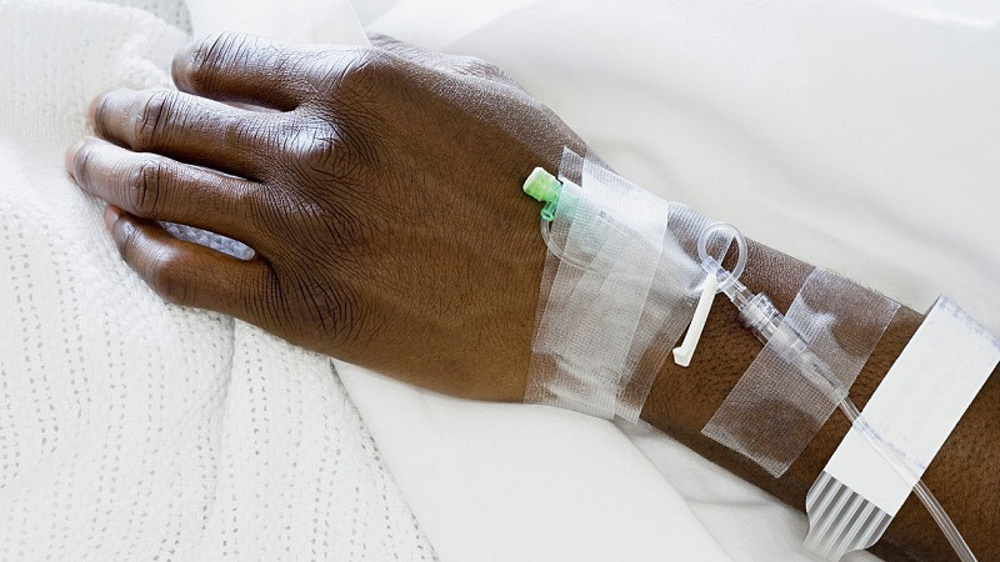
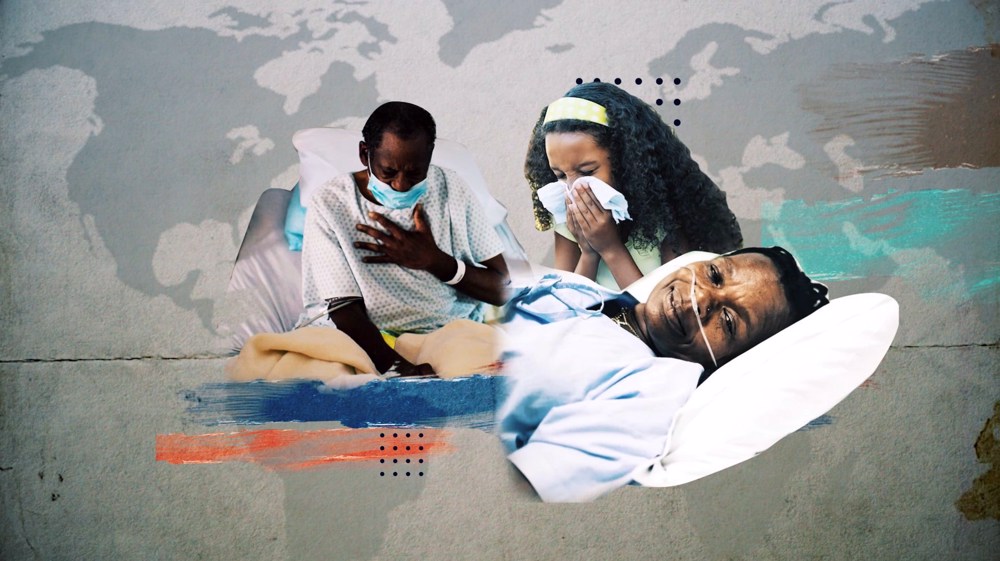
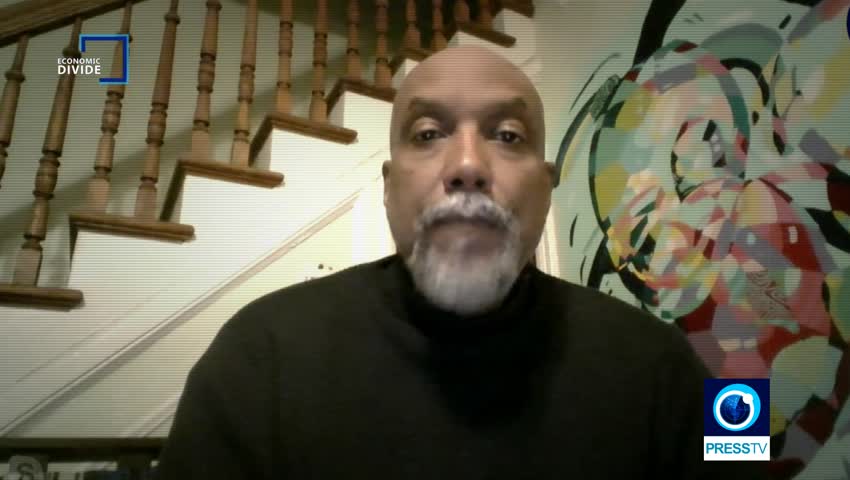
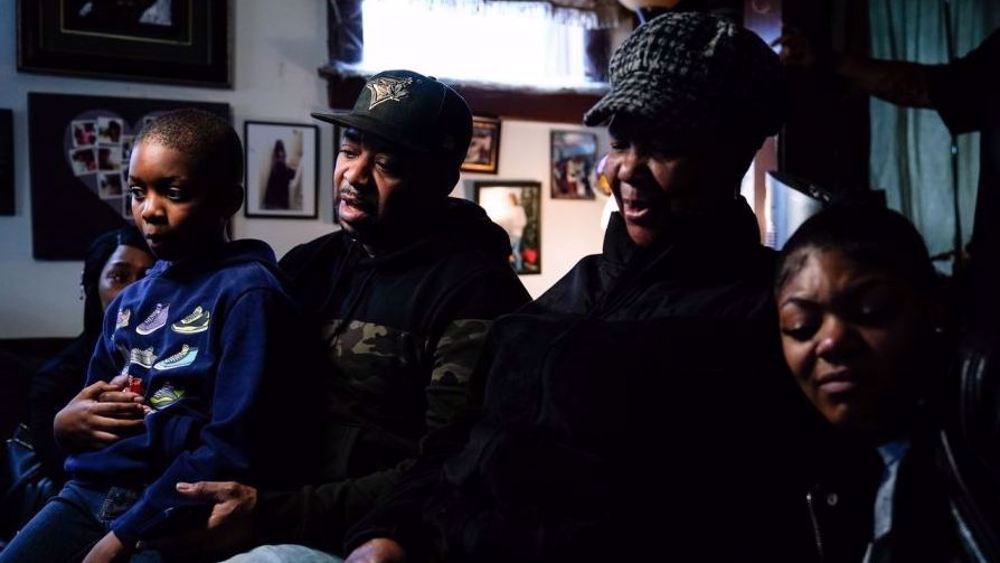
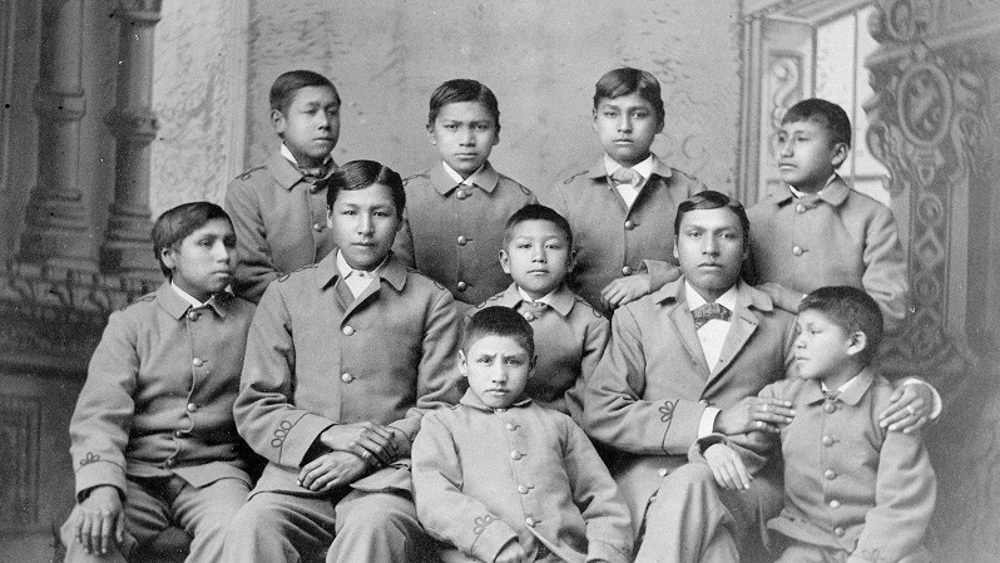
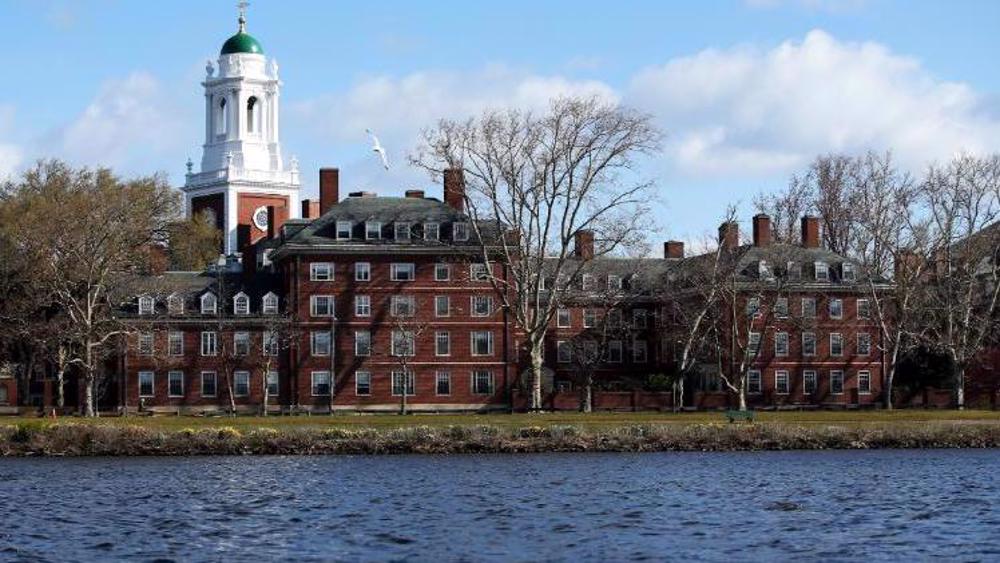
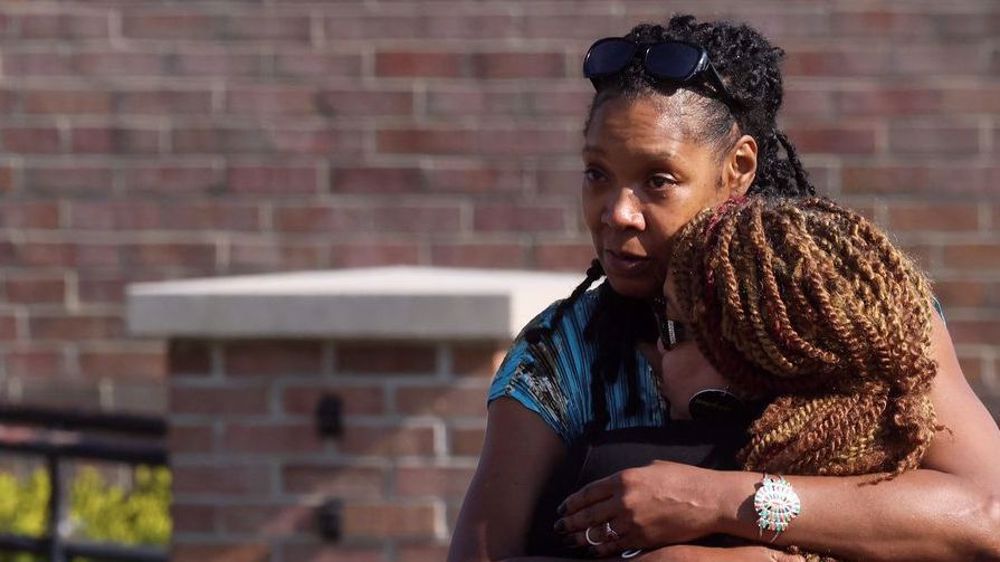

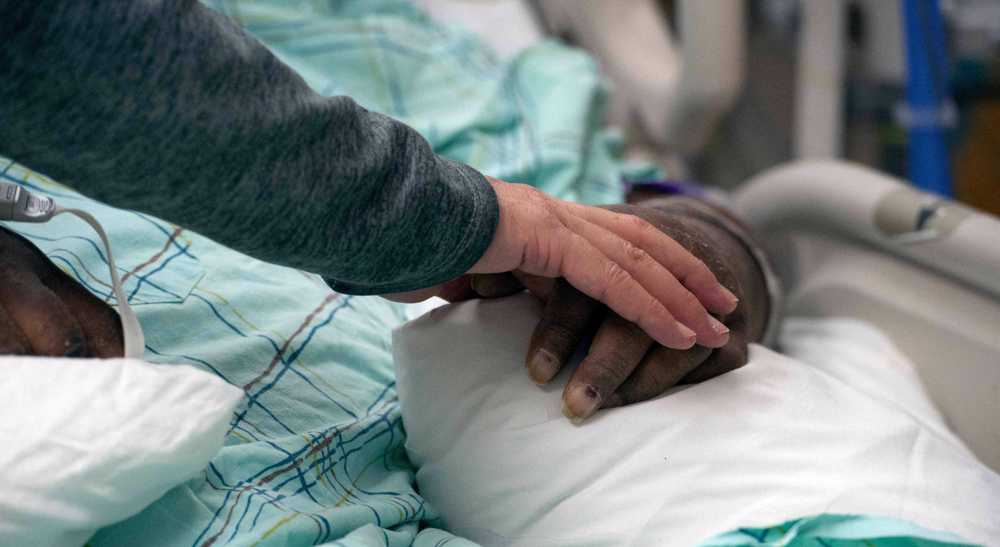
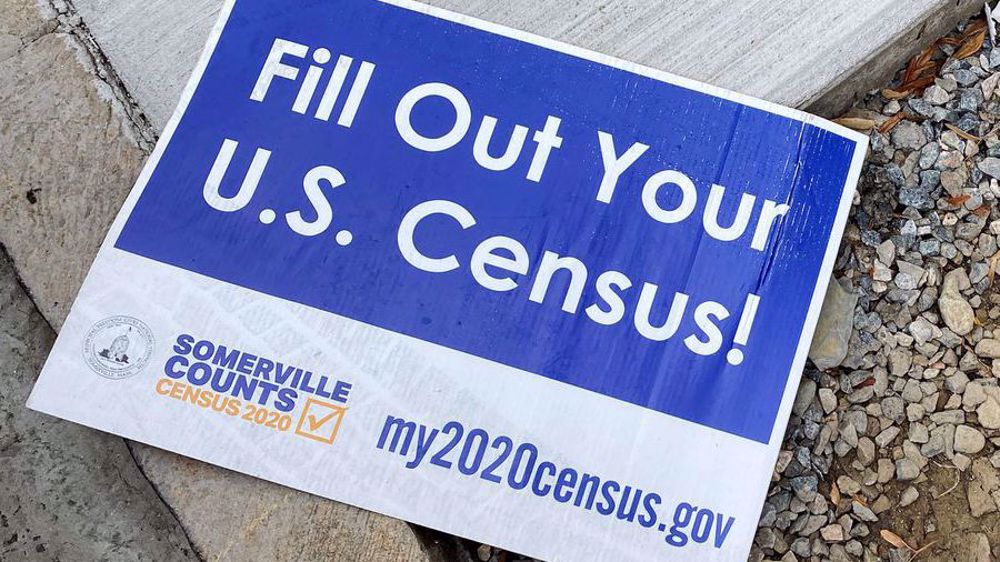
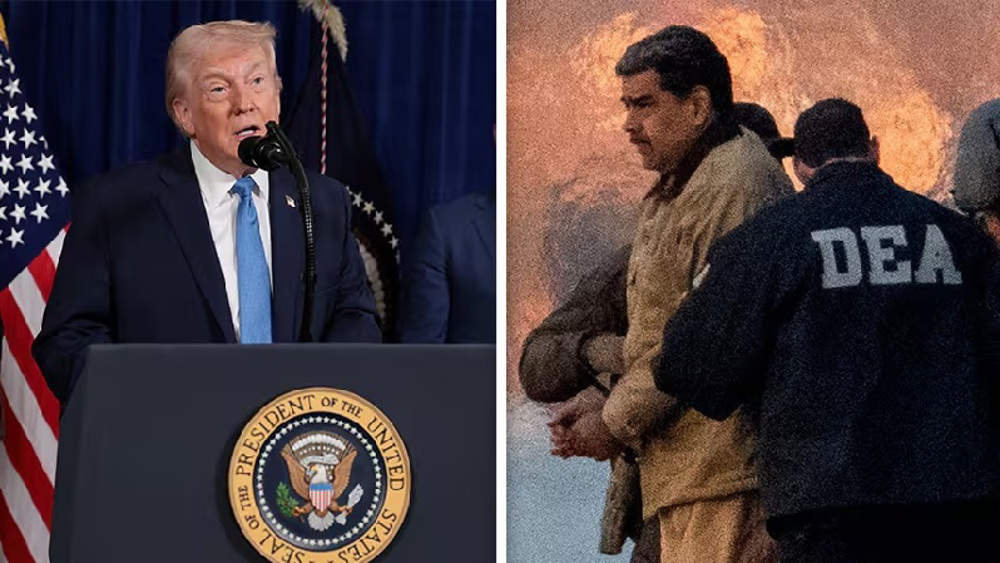

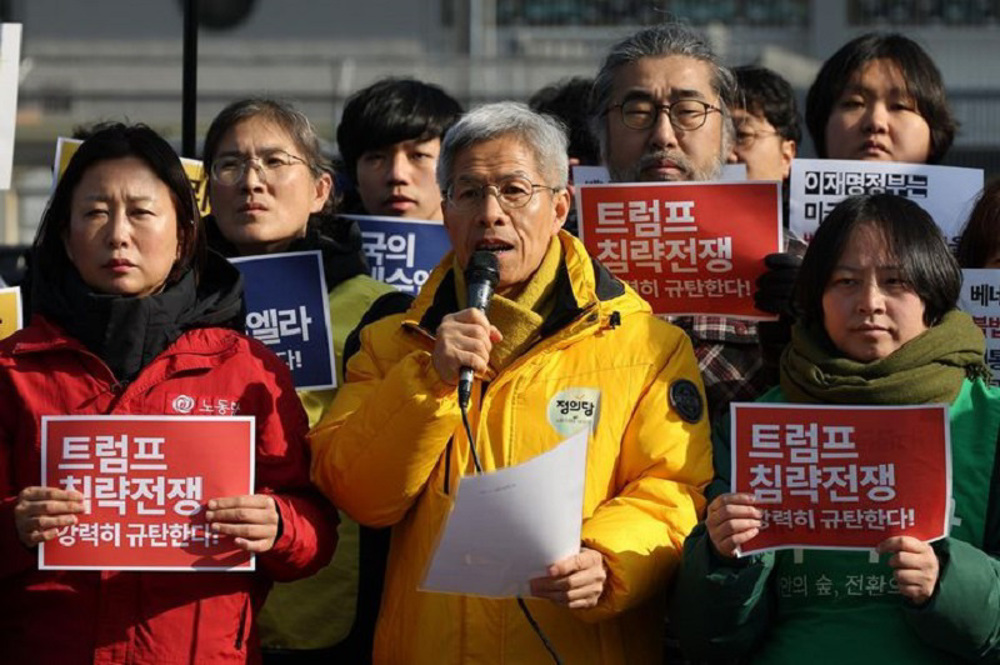



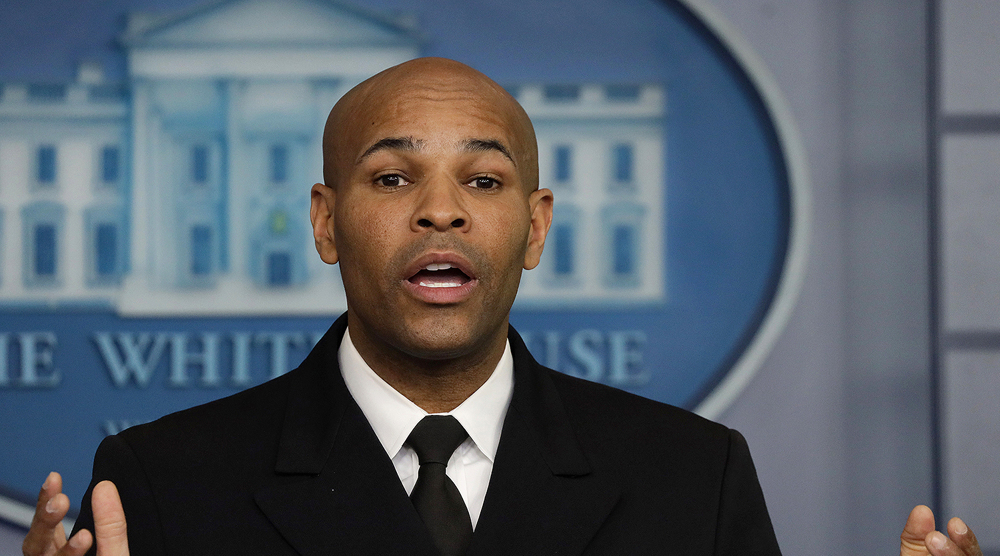
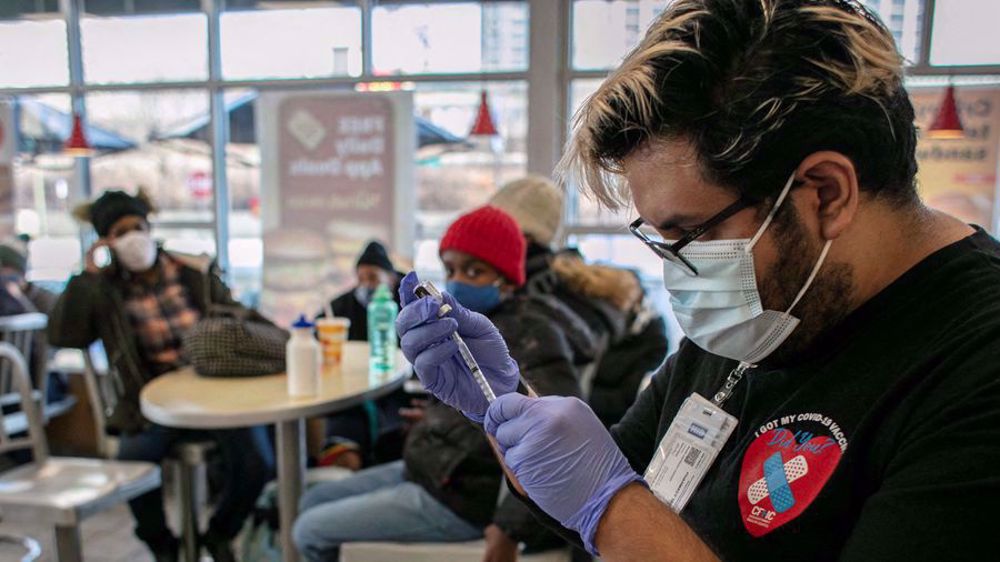
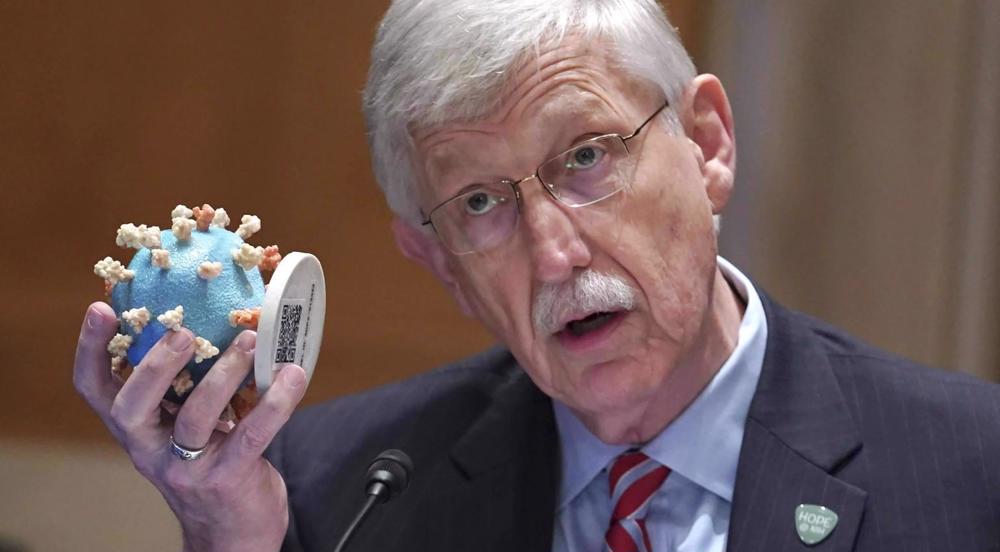
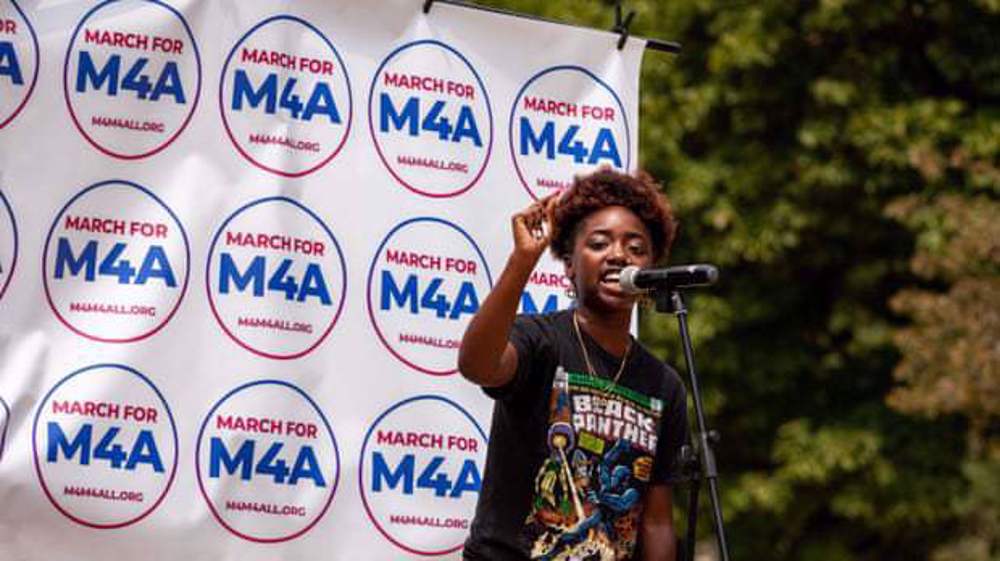
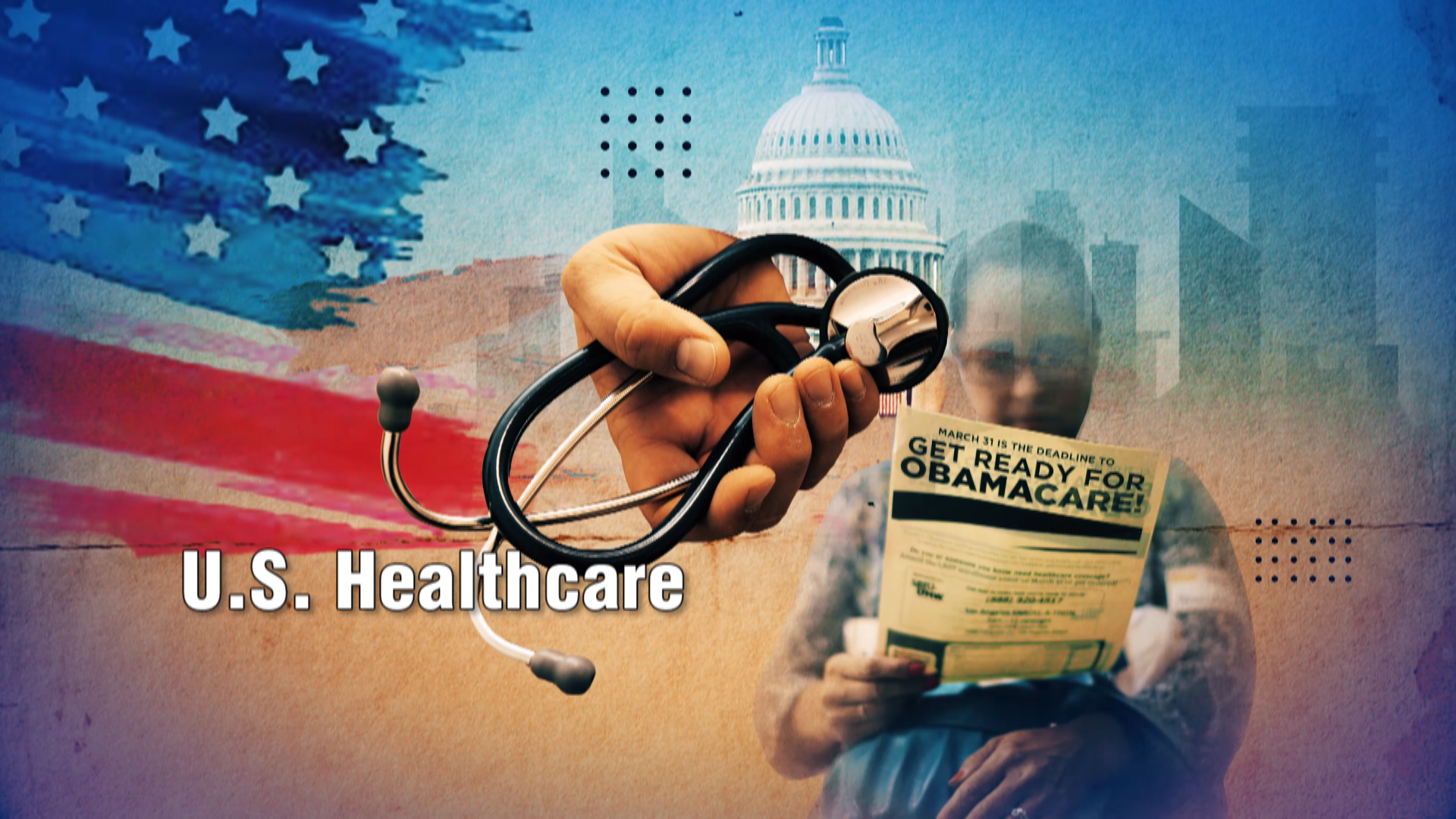
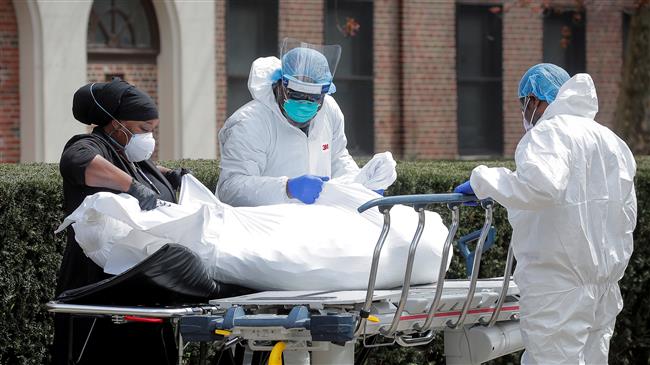
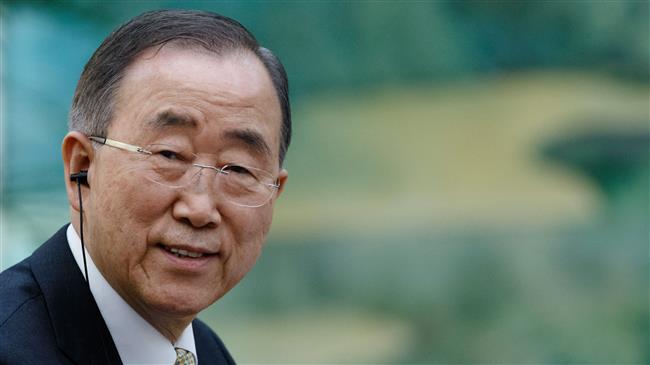



 This makes it easy to access the Press TV website
This makes it easy to access the Press TV website